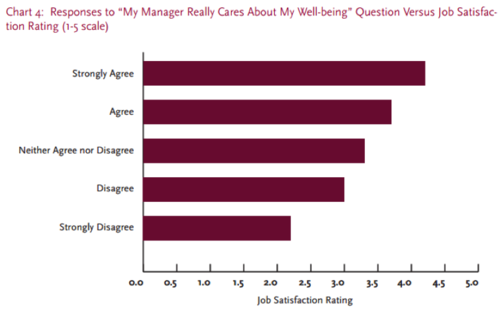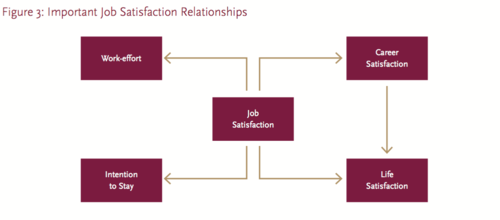We've been reading and hearing a lot lately about "toxic" work cultures. Starting with Ann Marie Slaughter's New York Times article A Toxic Work World in September to a great SHRM Next Chat we participated in this week on Teaming Up to Take Out a Toxic Culture, this term seems to have become a new buzzword that characterizes the experiences of many American workers. Merriam-Webster defines toxic as poisonous, extremely harsh, malicious, or harmful. The fact that this description resonates with so many is worrisome as we think about how employees experience their work lives.
These conversations had us reflecting upon our most recent research study, How Millennials Navigate Their Careers: Young Adult Views on Work, Life and Success, and our findings regarding corporate culture and the important role managers play in communicating and reinforcing that culture to their direct reports. Through surveys with 1,100 white-collar young adults at five large companies, we had sought to discover, among other things, what organizational characteristics are most likely to increase employee retention and engagement. In short, what are the actions and behaviors that engender the opposite of a toxic workplace culture?
Not surprisingly, we found that workplaces that provide an environment where employees can thrive and grow in their careers have employees that are more satisfied with their jobs, work harder, and are less likely to leave their employer to seek opportunities elsewhere. When we took a closer look at how support from their managers impacted the employee experience, we found a powerful relationship between caring managers and job satisfaction, as illustrated in the chart below.
In our research, we defined the term well-being quite broadly. It included concern for the employee across a number of different dimensions including his / her physical, emotional, relational, and financial wellness. The survey respondents who felt most strongly that their managers cared about their well-being were also the most satisfied with their jobs. Those who strongly agreed that their managers cared about their well-being scored 2 points higher on a 5-point job satisfaction scale than those who felt that their manager did not.
This strong correlation between concern for well-being and job satisfaction emphasizes the importance of taking a "whole person" perspective, demonstrating concern for employees beyond simply their day-to-day productivity and work output. Our study results highlight the critical role that managers play in young adults' job satisfaction and in creating an engaging workplace environment.
Further, high levels of job satisfaction impacted other outcomes that are critically important for individual and organizational success.
Worker satisfaction, while important in its own right, is also positively related to such critical variables as work effort (how hard employees are willing to work for their organization), intention to stay with their present employer, and satisfaction with one's life overall.
High levels of job satisfaction occur when the interests of employers and employees are clearly aligned. The role that managers play in fostering job satisfaction and sustaining a supportive workplace culture cannot be overstated. Managers ARE the "face of the company" and the critical link in translating corporate culture to employees.
Ensuring managers are equipped with the interpersonal and leadership skills needed to establish a positive and productive work environment must be seen as an organizational priority. They are the perfect cure to the toxic workplace.
Dr. Brad Harrington is the Executive Director of the Boston College Center for Work & Family and a research professor in the Carroll School of Management at Boston College and Jennifer Sabatini Fraone is Associate Director of the Boston College Center for Work & Family. www.bc.edu/cwf



